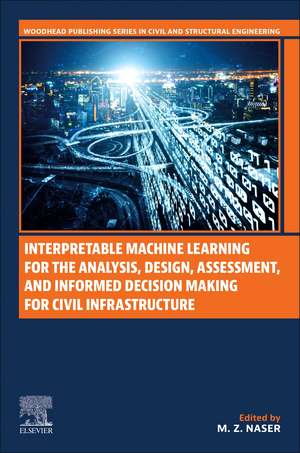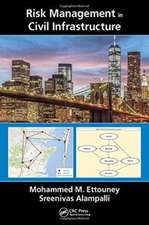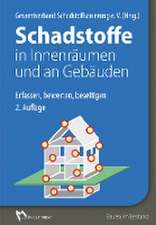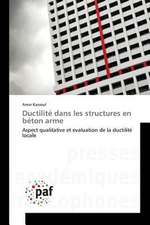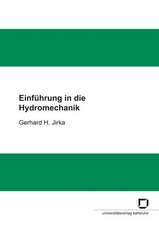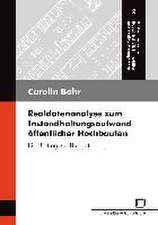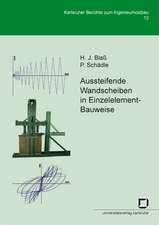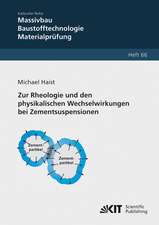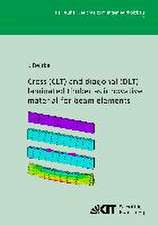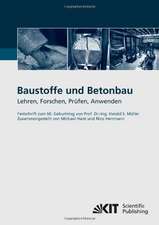Interpretable Machine Learning for the Analysis, Design, Assessment, and Informed Decision Making for Civil Infrastructure: Woodhead Publishing Series in Civil and Structural Engineering
Editat de M. Z. Naseren Limba Engleză Paperback – 23 oct 2023
This volume delves into the latest advancements in machine learning and artificial intelligence, providing readers with practical insights into their applications in the analysis, design, and assessment of civil infrastructure. From the innovative use of Generative Adversarial Networks in the design of shear wall structures to the application of deep learning for damage inspection of concrete structures, each chapter offers a unique perspective on the integration of cutting-edge technology in the field. Explore the potential of AI-driven fire safety design for smart buildings, the challenges and promises of large-scale evacuation modeling, and the use of machine learning classifiers for evaluating liquefaction potential. The book also features an in-depth discussion on explainable machine learning models for predicting the axial capacity of strengthened CFST columns and the development of spalling detection techniques using deep learning. Whether you are a civil engineer, researcher, or industry professional, this book is an invaluable resource that will equip you with the knowledge and tools to revolutionize civil infrastructure design and management.
This book presents innovative research results supplemented with case studies from leading researchers in this dynamic and emerging field to be used as benchmarks to carry out future experiments and/or facilitate the development of future experiments and advanced numerical models. The book is delivered as a guide for a wide audience, including senior postgraduate students, academic and industrial researchers, materials scientists, and practicing engineers working in civil, environmental, and mechanical engineering.
- Presents the fundamentals of AI/ML and how they can be applied in civil and environmental engineering
- Shares the latest advances in explainable and interpretable methods for AI/ML in the context of civil and environmental engineering
- Focuses on civil and environmental engineering applications (day-to-day and extreme events) and features case studies and examples covering various aspects of applications
Din seria Woodhead Publishing Series in Civil and Structural Engineering
- 24%
 Preț: 1041.88 lei
Preț: 1041.88 lei - 9%
 Preț: 931.67 lei
Preț: 931.67 lei - 29%
 Preț: 1333.83 lei
Preț: 1333.83 lei - 29%
 Preț: 1196.79 lei
Preț: 1196.79 lei - 29%
 Preț: 1074.37 lei
Preț: 1074.37 lei - 9%
 Preț: 805.54 lei
Preț: 805.54 lei - 29%
 Preț: 1329.07 lei
Preț: 1329.07 lei - 31%
 Preț: 1008.03 lei
Preț: 1008.03 lei - 9%
 Preț: 1008.22 lei
Preț: 1008.22 lei - 27%
 Preț: 780.87 lei
Preț: 780.87 lei - 39%
 Preț: 858.21 lei
Preț: 858.21 lei - 29%
 Preț: 1333.96 lei
Preț: 1333.96 lei - 29%
 Preț: 1195.75 lei
Preț: 1195.75 lei - 9%
 Preț: 1333.91 lei
Preț: 1333.91 lei - 28%
 Preț: 1140.27 lei
Preț: 1140.27 lei - 37%
 Preț: 683.84 lei
Preț: 683.84 lei - 9%
 Preț: 879.75 lei
Preț: 879.75 lei - 23%
 Preț: 1134.17 lei
Preț: 1134.17 lei - 24%
 Preț: 922.75 lei
Preț: 922.75 lei - 39%
 Preț: 1475.52 lei
Preț: 1475.52 lei - 9%
 Preț: 900.78 lei
Preț: 900.78 lei - 39%
 Preț: 901.38 lei
Preț: 901.38 lei - 23%
 Preț: 1516.67 lei
Preț: 1516.67 lei - 9%
 Preț: 1153.90 lei
Preț: 1153.90 lei - 23%
 Preț: 1083.03 lei
Preț: 1083.03 lei - 24%
 Preț: 874.91 lei
Preț: 874.91 lei - 24%
 Preț: 1048.97 lei
Preț: 1048.97 lei - 9%
 Preț: 1107.70 lei
Preț: 1107.70 lei - 9%
 Preț: 1187.11 lei
Preț: 1187.11 lei - 23%
 Preț: 1129.22 lei
Preț: 1129.22 lei - 24%
 Preț: 986.08 lei
Preț: 986.08 lei - 28%
 Preț: 1285.96 lei
Preț: 1285.96 lei - 29%
 Preț: 1300.03 lei
Preț: 1300.03 lei - 29%
 Preț: 1280.31 lei
Preț: 1280.31 lei - 29%
 Preț: 1330.37 lei
Preț: 1330.37 lei - 9%
 Preț: 746.20 lei
Preț: 746.20 lei - 37%
 Preț: 683.94 lei
Preț: 683.94 lei - 23%
 Preț: 1202.24 lei
Preț: 1202.24 lei - 29%
 Preț: 1481.04 lei
Preț: 1481.04 lei - 9%
 Preț: 812.56 lei
Preț: 812.56 lei - 24%
 Preț: 1186.01 lei
Preț: 1186.01 lei - 9%
 Preț: 1357.19 lei
Preț: 1357.19 lei - 9%
 Preț: 842.75 lei
Preț: 842.75 lei - 23%
 Preț: 1416.53 lei
Preț: 1416.53 lei - 39%
 Preț: 1189.20 lei
Preț: 1189.20 lei - 24%
 Preț: 1162.19 lei
Preț: 1162.19 lei - 24%
 Preț: 1007.79 lei
Preț: 1007.79 lei - 9%
 Preț: 1007.35 lei
Preț: 1007.35 lei
Preț: 845.95 lei
Preț vechi: 1110.33 lei
-24% Nou
Puncte Express: 1269
Preț estimativ în valută:
161.89€ • 168.06$ • 134.99£
161.89€ • 168.06$ • 134.99£
Carte tipărită la comandă
Livrare economică 15-29 martie
Preluare comenzi: 021 569.72.76
Specificații
ISBN-13: 9780128240731
ISBN-10: 0128240733
Pagini: 298
Ilustrații: 160 illustrations (20 in full color)
Dimensiuni: 152 x 229 mm
Greutate: 0.4 kg
Editura: ELSEVIER SCIENCE
Seria Woodhead Publishing Series in Civil and Structural Engineering
ISBN-10: 0128240733
Pagini: 298
Ilustrații: 160 illustrations (20 in full color)
Dimensiuni: 152 x 229 mm
Greutate: 0.4 kg
Editura: ELSEVIER SCIENCE
Seria Woodhead Publishing Series in Civil and Structural Engineering
Cuprins
1. Integrated schematic design method for shear wall structures: A practical application of generative adversarial networks
2. Leveraging machine learning techniques to support a holistic performance-based seismic design of civil structures
3. Deep learning-based damage inspection for concrete structures
4. Explainable computational intelligence method to evaluate the damage on concrete surfaces compared to traditional visual inspection techniques
5. Smart building fire safety design driven by artificial intelligence
6. The potential of deep learning in dynamic maintenance scheduling for thermal energy storage chiller plants
7. The use of IDA on GPR data to monitor road transport infrastructures
8. Ai for large-scale evacuation modelling: promises and challenges
9. On the application of machine learning classifiers in evaluating liquefaction potential of civil infrastructure
10. Explainable machine learning model for prediction of axial capacity of strengthened CFST columns
11. Harnessing data from benchmark testing for the development of spalling detection techniques using deep learning
2. Leveraging machine learning techniques to support a holistic performance-based seismic design of civil structures
3. Deep learning-based damage inspection for concrete structures
4. Explainable computational intelligence method to evaluate the damage on concrete surfaces compared to traditional visual inspection techniques
5. Smart building fire safety design driven by artificial intelligence
6. The potential of deep learning in dynamic maintenance scheduling for thermal energy storage chiller plants
7. The use of IDA on GPR data to monitor road transport infrastructures
8. Ai for large-scale evacuation modelling: promises and challenges
9. On the application of machine learning classifiers in evaluating liquefaction potential of civil infrastructure
10. Explainable machine learning model for prediction of axial capacity of strengthened CFST columns
11. Harnessing data from benchmark testing for the development of spalling detection techniques using deep learning
